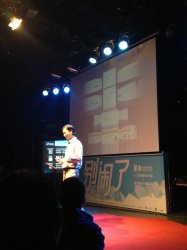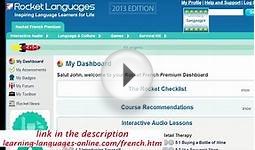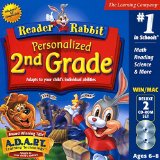Earn a Certificate online free
Interview conducted by and translated from original Chinese by Coursera team member, Eli Bildner.
 Guokr.com’s “Ten-thousand Youth Conference” bore all the hallmarks of a rock concert: hundreds of effervescent twenty-somethings, a flashy A/V setup, migrating packs of autograph-seekers. But at this gathering, the “rock stars” signing autographs were, in fact, tenured professors from greater China’s top universities, and the animated audience was comprised of MOOC fans from across the country.
Guokr.com’s “Ten-thousand Youth Conference” bore all the hallmarks of a rock concert: hundreds of effervescent twenty-somethings, a flashy A/V setup, migrating packs of autograph-seekers. But at this gathering, the “rock stars” signing autographs were, in fact, tenured professors from greater China’s top universities, and the animated audience was comprised of MOOC fans from across the country.
I met a number of remarkable people during the Guokr conference (as a Coursera translation partner, Guokr has translated an impressive array of courses into Chinese). I met Professor Benson Yeh, of National Taiwan University, whose course on probability featured the first MOOC-based multiplayer gaming platform. I met Zi Lingzi, at 14 years old the youngest member of Guokr’s MOOC Academy. And then there was Wang Zhen. When the emcee called him up to the stage, the audience erupted in applause. I’d never heard of him, which clearly signified by remove from the China MOOC loop; Wang Zhen had already achieved local renown as a MOOC superstar, having earned 40 credentials (over 30 of them from Coursera).
Earlier this month, we had a chance to connect with Wang Zhen via email.
Coursera: Can you tell us a bit about yourself?
Wang Zhen: My name is Wang Zhen. I was born in Nanyang, in Hubei Province, in 1984. In 2002, I entered Beihang University, in Beijing, to study applied physics, and in 2009 received my master’s in computational physics from Beihang as well. Now, I live in Beijing’s Haidian District, where I work on computational modeling for a manufacturing business.
Coursera: What originally inspired you to start taking MOOCs? What was the first course you completed?
Wang Zhen: Ever since I was small I’ve always been a very curious person, but even having spent so many years in school I’d never found a relaxed, self-directed learning environment. If MOOCs hadn’t appeared, it’s possible that my curiosity would have remained buried forever. Fortunately, in 2011 I found Stanford’s three online open courses: Artificial Intelligence, Machine Learning, and Databases. Conveniently, at that time I was pretty free, and thus my MOOC studies began. And from then on I’ve fallen in love with MOOCs and their free atmosphere.
The first course I completed was Sebastian Thrun’s Artificial Intelligence course. Or, it could have been Andrew Ng’s Machine Learning class; that depends on which course, in 2011, first released its certificates!
You might also like





|
ShareBuilder Young Investor Starter Kit Software (ShareBuilder)
|

|
Reader Rabbit Personalized 2nd Grade Deluxe Age Rating:6 - 8 Software (Learning Company)
|







